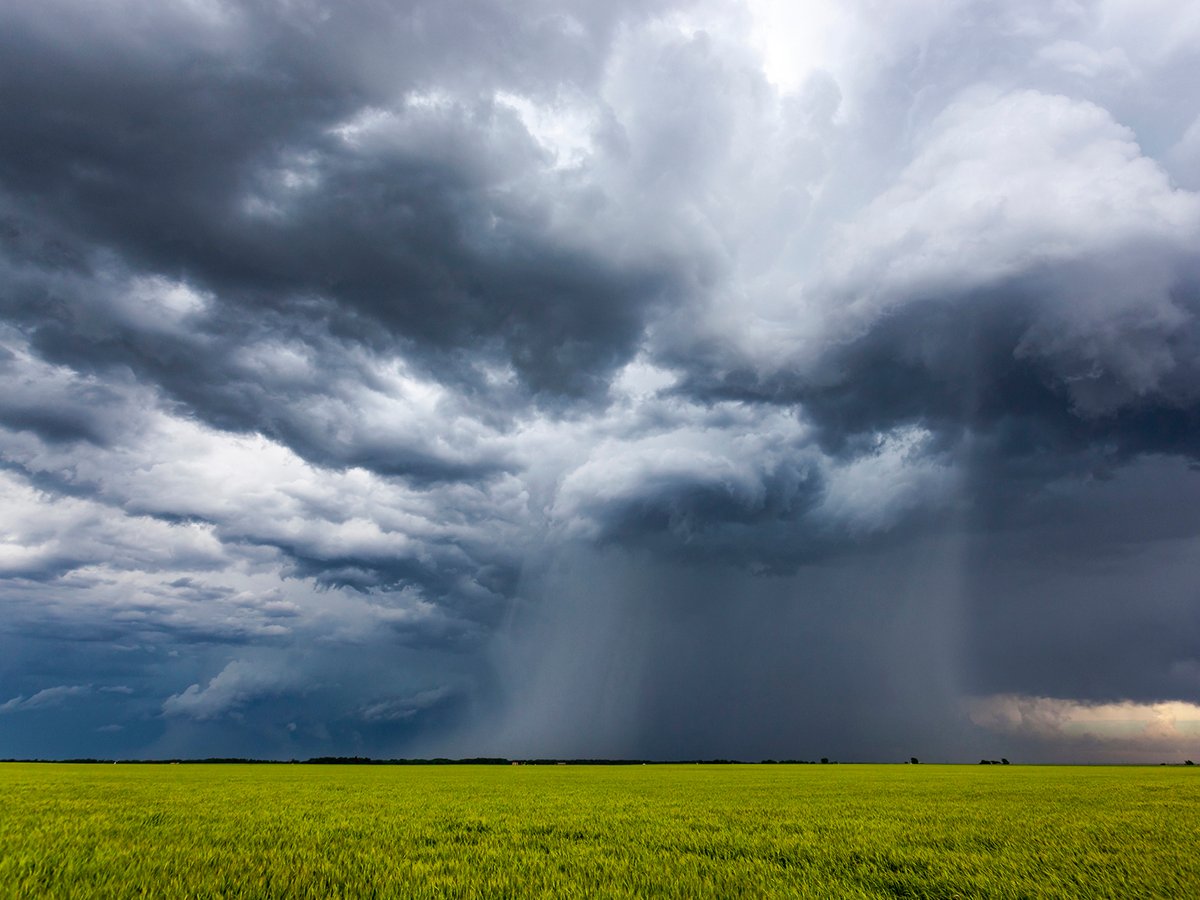Canadian seed potato growers can avoid costly court cases through a service offered by the Fruit and Vegetable Dispute Resolution Corp.
David Hendrick and Andrew Wilson of the Canadian Horticultural Council presented an overview of the DRC to the Saskatchewan Seed Potato Growers Association meeting.
The not-for-profit corporation was established in 1999 under the North American Free Trade Agreement to provide the produce industry with policies, standards and services necessary for resolving commercial disputes. Members include those who grow, buy, sell or broker produce in North America, with associate memberships offered to companies situated outside North America.
Read Also

Extreme rain increases as planet warms
In this issue, we are going to wrap up our look at extreme rainfall by examining the different weather patterns that tend to be associated with these rainfall events.
The horticultural council is meeting with seed potato growers across Canada to determine their interest in participating in DRC. Seed potatoes were not included in the original DRC mandate, so growers are not members.
Hendrick sees DRC as a tool to help growers resolve problems with their buyers.
“We want to get you back to doing business as quickly as possible and maintain good relationships,” he said.
Steve Sanders, president of the Saskatchewan Seed Potato Growers Association, supports farmers’ involvement with DRC.
Interviewed during the association’s annual meeting in Saskatoon Nov. 19, the Yorkton grower said it keeps costs down, educates farmers and provides them with a legal document.
He said the DRC can intercede and mediate on behalf of members in a dispute and help maintain good business relations.
“Rather than standing there pointing fingers, you actually have a dialogue,” said Sanders.
He said increased potato exports from Saskatchewan have increased the need for DRC memberships.
“It has the potential to fill a hole we have that previously we didn’t,” Sanders said.
Several issues remain to be addressed, including whether to have a sliding fee for different sized operations. Now, growers are charged an annual membership fee of $535 US for the DRC.
It builds on the services of the American Perishable Agricultural Commodities Act, which is the primary vehicle for resolving domestic and international disputes in the United States.
The DRC membership fee covers all services up to and including informal mediation. Additional fees are charged for services like arbitrations.
Hendrick said the corporation takes an average of 192 days to arbitrate settlements. “The DRC is intended to be faster and easier to use,” he said.
Wilson said the agency would use applicable seed potato grade standards to resolve quality issues, and DRC trade standards to resolve “slow or no payment” issues. It would deal with contractual disputes of a provincial, national and international nature within North America.
To use DRC, growers must have a membership before disputes occur. It can address concerns even if only one party is a member, provided the other has agreed to abide by DRC rules.
Wilson said DRC avoids the courts and uses arbitration as a last resort, but its decisions are “binding and court enforceable.”
Neil Thompson and Peter Hiebert, who both grow potatoes at Riverhurst, Sask., said in interviews later that they see benefits in all parties understanding the ground rules before going into a contract.
Thompson wanted to know how the grower would fare in cases of bankruptcy of the company buying his produce, asking, “am I protected before the bank?”
Hiebert did not feel the membership price was too high, comparing it to the cost of a load of potatoes.
Ed Fielder, who grows grain and plants 60 acres of potatoes at Spalding, Sask., said it’s a big cost for small growers.
“But if I had a problem, it might seem reasonable,” he said.
John Kšnst, of Dutch Potato Farm near Outlook, Sask., called it a good organization for educating smaller growers and younger, less experienced farmers and exporters.
“It’s a good tool to make sure you get paid,” said Kšnst.
Leo Baribeau, chair of the Canadian Produce Marketing Association, said DRC can protect growers, retailers and wholesalers.
Interviewed earlier in November at the Saskatchewan Vegetable Growers Association meetings in Saskatoon, he said before DRC, a grower would have to go to court if he wasn’t paid.
“This is much cheaper than court,” he said.
“It’s for anybody who wishes to protect their investment.”














